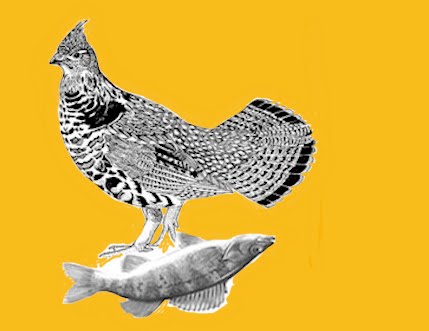I wrote this poem to recite it at a town hall gathering we had about community survival. Interfor and the Ministry of Forests had quite recently shut down their main offices in the valley leaving a skeleton staff and thereby taking away a very large number of employed positions and the families that went with them. Even a few multi-generational settler clans were having to give some hard thought to looking elsewhere as the local economy slid towards the drain hole.
That was also about the time of the 50th anniversary of finishing the road that linked the hitherto isolated outside world to Bella Coola. The story of that feat was one to inspire local initiative, for in that case it was their parents and grand-parents who'd had the pluck to just do it. The Province did not think the road could be constructed at all or, at least at a cost worthy of the public purse. So locals just got together, surveyed the route, and used their own literally backroad know-how, equipment and dollars to punch the "Freedom Road" up the steep valleys through to Anahim.
 The BC Government eventually was shamed into partial funding but it remains a major testament to those folks, that beloved place, and the power that can arise anywhere when everyday people put their minds and shoulders to the wheel.
The BC Government eventually was shamed into partial funding but it remains a major testament to those folks, that beloved place, and the power that can arise anywhere when everyday people put their minds and shoulders to the wheel. So pardon the cornball but I meant every word of it:
Leaving Bella Coola
The truck is packed, the kids are crying.
The alders down the lane are sighing
To think of nothing's what I'm trying,
Leaving Bella Coola.
I'll smoke another pipe and ponder
What it is forced us to wander
Off into the unknown yonder,
Leaving Bella Coola.
Time was when all the settlers' children
Knew this place would be their long-run
Home. Now empty homesteads watch 'em,
Leaving Bella Coola.
For way too long the logging went on
Like the good times could not end on
Somber off-key dying swan songs,
Leaving Bella Coola.
We let the profits from these rich lands
flow to distant sons-of-bitch hands
Just like water running through sands
Leaving Bella Coola.
Now Gordon Campbell tolls the bell
To send this Valley straight to hell
And with no timber left to fell,
I'm leaving Bella Coola.
But wait! remember 'fifty-three?
Did our forefathers build the Free-
-dom Road so now their kids could be
All leaving Bella Coola?
No, it was built for coming back
Right down "the Hill" on their rough track
What did they have that now I lack,
Leaving Bella Coola?
My pipe's gone out, but now there's flame,
Inside my settler soul again
No one can force this Valley man
to leaving Bella Coola.
C'mon, unpack! We're gonna stay
If dad could build that road, that way
It won't be 'til my dying day,
I'm leaving Bella Coola.



